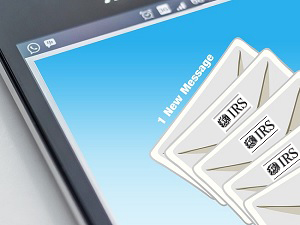
Every tax season provides a new opportunity for cybercriminals to unleash a torrent of phishing schemes to target and trick taxpayers into giving their data and financial information over to the wrong hands. Cybercriminals use phishing emails and robocalls to fool users into thinking the IRS or U.S. government is contacting them, either to collect direct payments for overdue or unpaid taxes or to pry financial data from unsuspecting users. As a managed IT services company with a track record of identifying and filtering out these e-mail scams, Natural Networks is uniquely positioned to help any business owner avoid these deceptions.
What Kind of Messages to Look Out For
Many companies are opting to send tax forms, like W-9’s, online to their employees. This grants an invaluable opportunity to cybercriminals to clone messages like these and embed them with malicious code or malware.
Cybercriminals capitalize on the new tax season every year. A newly discovered phishing e-mail campaign that allegedly contains W-9 forms aims to manipulate U.S. taxpayers into clicking malicious links or downloading attachments that are likely infected with malware.
According to researchers who discovered this recent attack, the messages are not overly complex. Some e-mails arrive with an attachment, while others contain a link to download a document. Both of these messages deliver a form of malware, called Emotet, to the recipient.
How to Protect Yourself
Phishing defense expert, Tonia Dudley, at Cofense, a cybersecurity company, stated in a security blog that they expect that the phishing scams will get worse as the tax season progresses. Other experts advise protecting against these types of attacks by filing tax returns early, using a secure Internet connection to file electronically, and checking credit reports once per year. You should always protect your social security number throughout the year and research tax preparers before sharing any personal details.
It is also important to double-check and ensure that the e-mails you are receiving are truly from who they say they are from. Cybercriminals employ a method called spoofing where they can make their e-mail address look like it may be from the IRS or other government agencies. You can spot these spoofed e-mails by looking at the top of the email in the “From” field and viewing the full e-mail address to ensure that the domain (the part after the @ symbol in the e-mail address) is correct.
Many phishing e-mails and scams can also be blocked before they reach your e-mail inbox by employing a secure e-mail spam filter. A managed IT solutions company, like Natural Networks, can help protect your business and employees from phishing e-mails before they reach their inbox. A spam filter can scan and block e-mails that are deemed spam or contain questionable content within before they are delivered.
E-mail security is an important aspect for any business owner, especially around tax season. If you are interested in learning more about how a managed IT solution can help you, contact us today.



